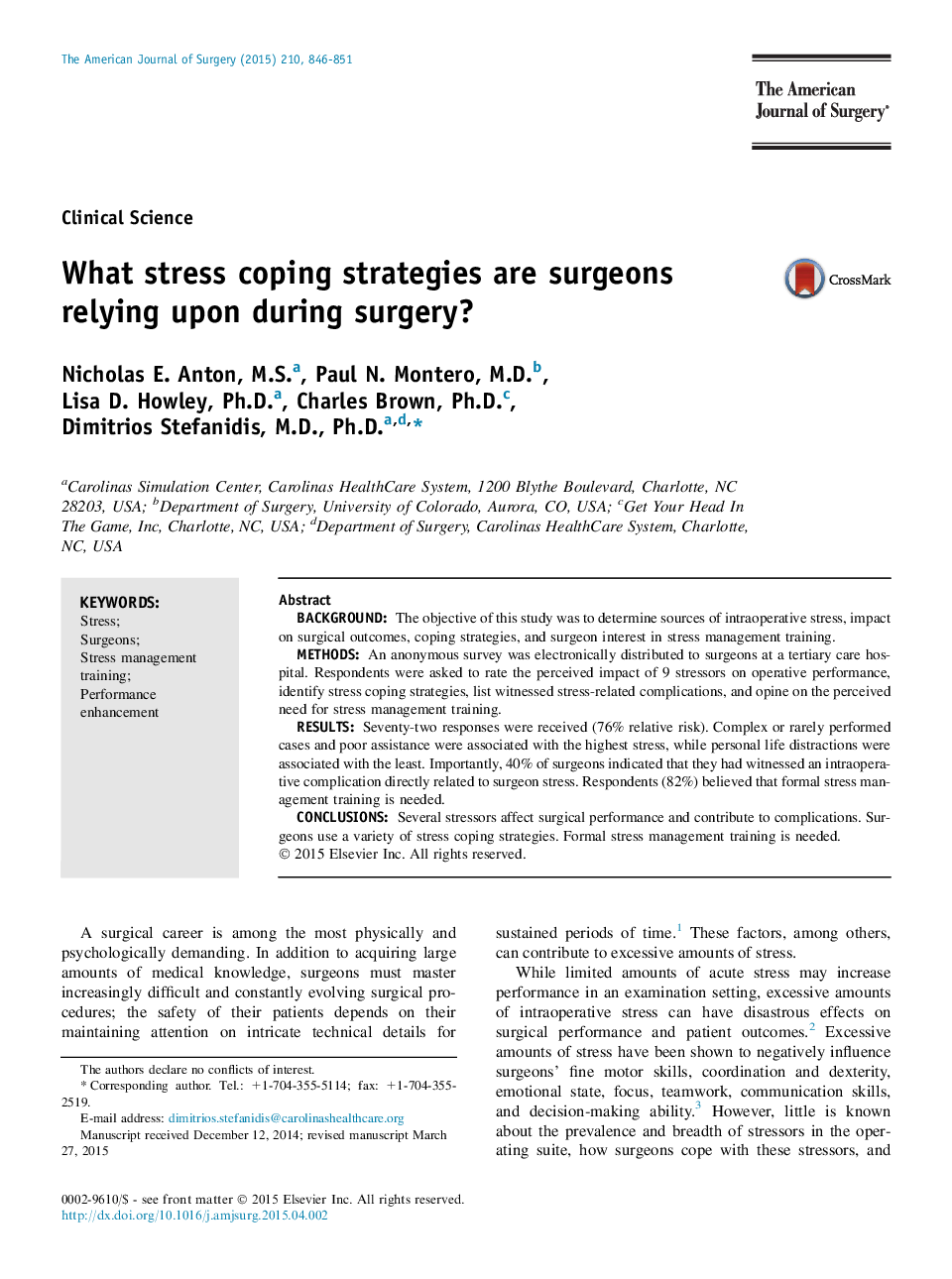| Article ID | Journal | Published Year | Pages | File Type |
|---|---|---|---|---|
| 4278253 | The American Journal of Surgery | 2015 | 6 Pages |
•Surgeons reported that complex or rarely performed cases and poor assistance were associated with the highest levels of intraoperative stress, while personal life distractions were associated with the least.•40% of surgeons indicated that they had witnessed an intraoperative complication that was directly related to surgeon stress.•Surgeons use a variety of stress coping strategies, some positive and some negative.•Formal stress management training for surgeons was favored by 82% of respondents; this type of training may optimize performance during stressful situations and minimize complications.
BackgroundThe objective of this study was to determine sources of intraoperative stress, impact on surgical outcomes, coping strategies, and surgeon interest in stress management training.MethodsAn anonymous survey was electronically distributed to surgeons at a tertiary care hospital. Respondents were asked to rate the perceived impact of 9 stressors on operative performance, identify stress coping strategies, list witnessed stress-related complications, and opine on the perceived need for stress management training.ResultsSeventy-two responses were received (76% relative risk). Complex or rarely performed cases and poor assistance were associated with the highest stress, while personal life distractions were associated with the least. Importantly, 40% of surgeons indicated that they had witnessed an intraoperative complication directly related to surgeon stress. Respondents (82%) believed that formal stress management training is needed.ConclusionsSeveral stressors affect surgical performance and contribute to complications. Surgeons use a variety of stress coping strategies. Formal stress management training is needed.
